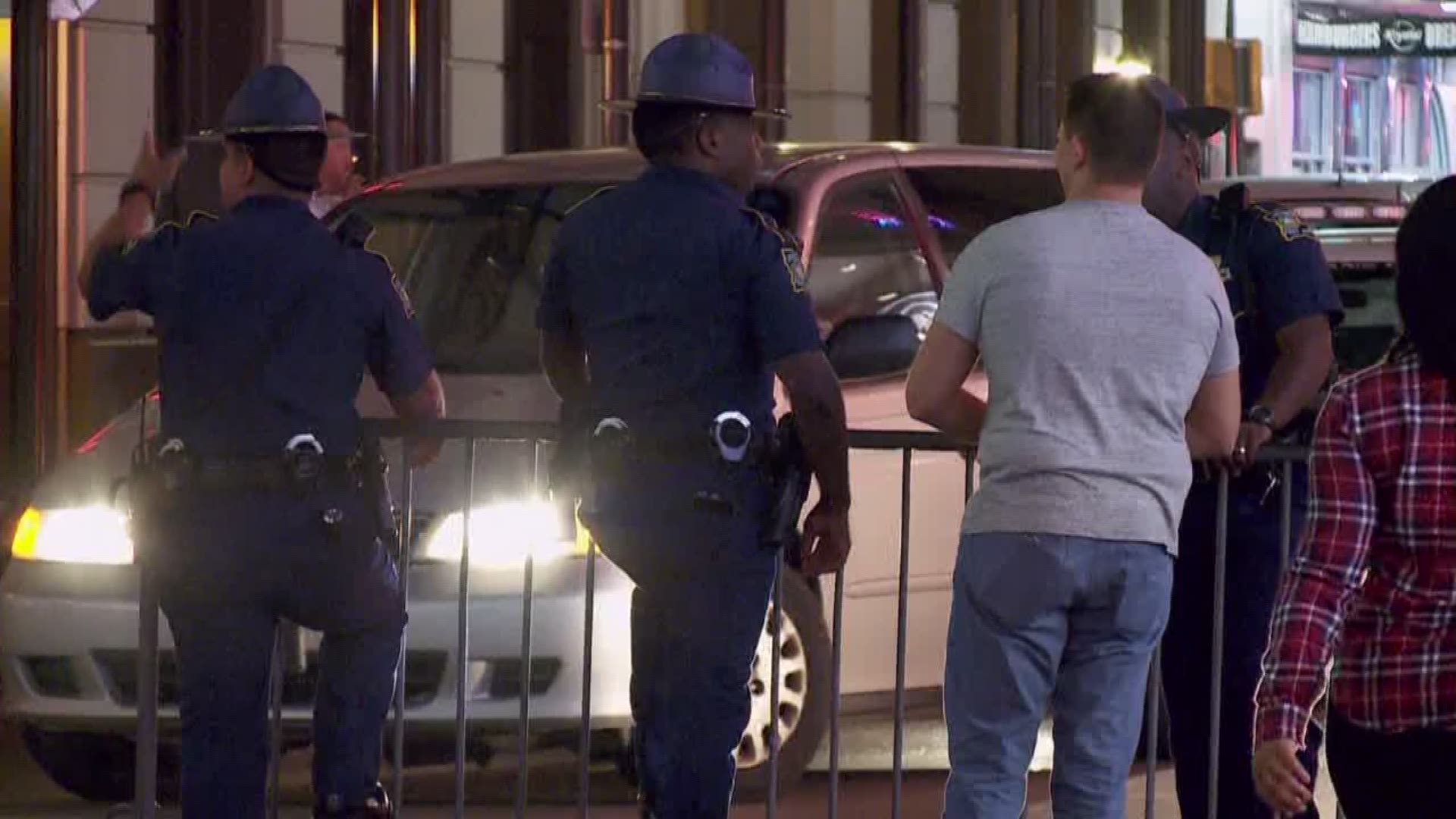NEW ORLEANS -- The city’s top cop says that a little more backup from his partners at the Louisiana State Police might help stem the rise in police response times that New Orleans has experienced over the past few years.
At the request of Mayor Mitch Landrieu, state troopers have upped their presence in the French Quarter. And NOPD Superintendent Michael Harrison credits the extra manpower with a 40 percent reduction in crime in the city’s oldest neighborhood. Residents there gave the arrangement a vote of confidence last month by approving a new quarter-cent sales tax that will support 30 state troopers in the area permanently.
But Harrison said he is frustrated that accidents on the stretch of interstate highway that runs through the city take patrol officers away from answering emergency calls.
“Traffic accidents in the city of New Orleans account for a large amount of the slow response,” Harrison said. “Handling accidents on the interstate — I-10 and 610 — is a crucial problem for the New Orleans Police Department.”
Harrison said accidents tend to tie up lanes of traffic in New Orleans East on almost a daily basis; state police troopers could theoretically take the job off his undermanned department’s hands.
Even critics of the Landrieu administration, like the Rev. Tom Watson, agree.
“To me that’s a no brainer,” said Watson, whose parishioners have complained about the delayed police response. “You take your state troopers and say, ‘Y’all go handle that so we can keep protecting these citizens in New Orleans East.’”
Louisiana State Police Superintendent Mike Edmonson said augmenting NOPD patrols with state troopers helps ensure that law enforcement shows up when someone calls 911 in the French Quarter.
But whether cops will show up when called has been a major concern across the city. A joint investigation last month by WWL-TV and The New Orleans Advocate showed the average response time citywide had tripled in five years, while the force shrunk by nearly a third. The average times were even longer in places like New Orleans East, where 2 hours and 11 minutes was the average wait time.
Questioned about the particularly long waits in the East’s 7th District, Harrison, the former 7th District Commander, listed a number of factors, including the physical size of the district, the larger 911 call volume there and the higher-than-average number of false alarms.
But he stressed the man-hours devoted to accidents on the city’s interstate highways, including a 15-mile stretch of Interstate-10 through mostly swampy, uninhabited parts of New Orleans East.
Nevertheless, state law requires that municipal police forces patrol state and interstate highways, rather than the state police. So while state troopers patrol the highway just over the border in Metairie, an unincorporated area of Jefferson Parish, they stop at the Orleans Parish line.
“That city police agency is responsible for the crashes on those particular highways,” Edmonson said. “They are responsible for that enforcement. The law is clear on that.”
Edmonson said he’s already doing New Orleans a favor by dedicating one of his troopers to highway patrols inside the city’s limits. And his office stressed that his agency only has 1,000 troopers to cover the entire state, fewer than the NOPD has for Orleans Parish.
“I have assigned a state trooper on a daily basis to assist the New Orleans Police Department on our interstate system every day,” Edmonson said.
Over the summer, Edmonson and Harrison announced a partnership to allow state troopers to perform highway patrol duties in New Orleans as a part of off-duty details. Under the arrangement, the State Police would extend supplemental patrols to New Orleans East and the NOPD would reimburse the state for the cost of paying the troopers for the detail work.
Asked if he would consider expanding his troopers’ role on highways in New Orleans, Edmonson said he was “looking at that every single day.”

